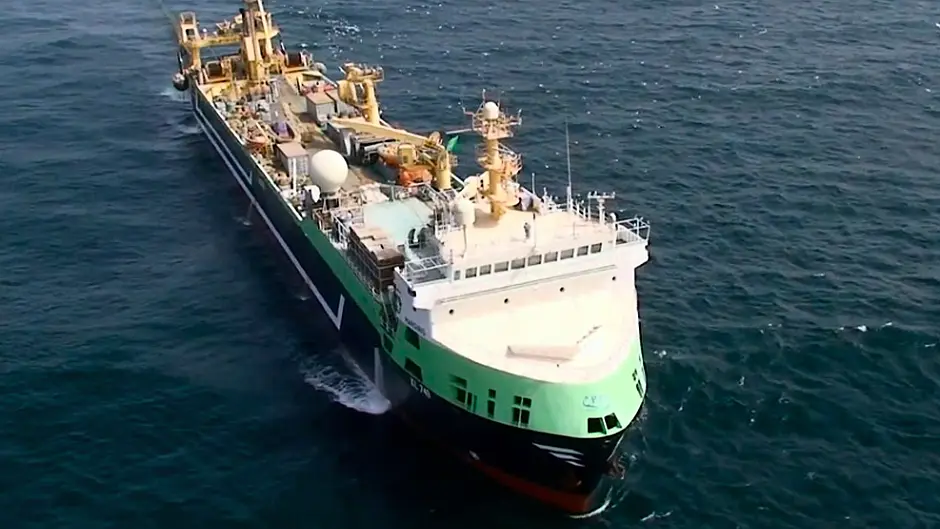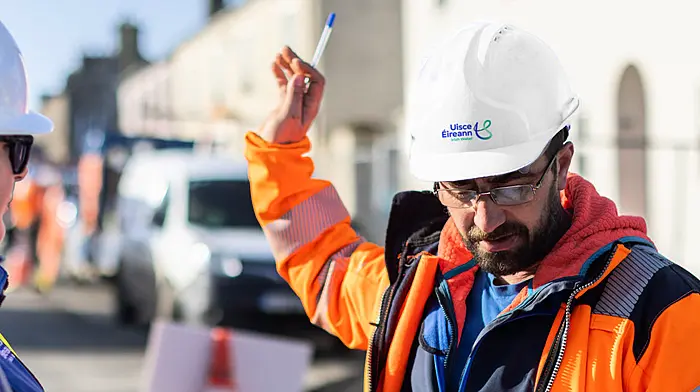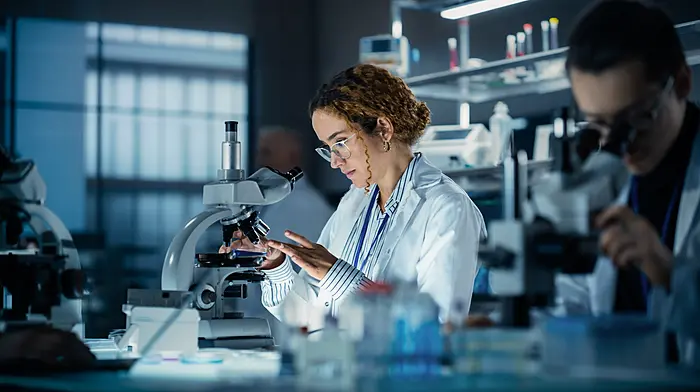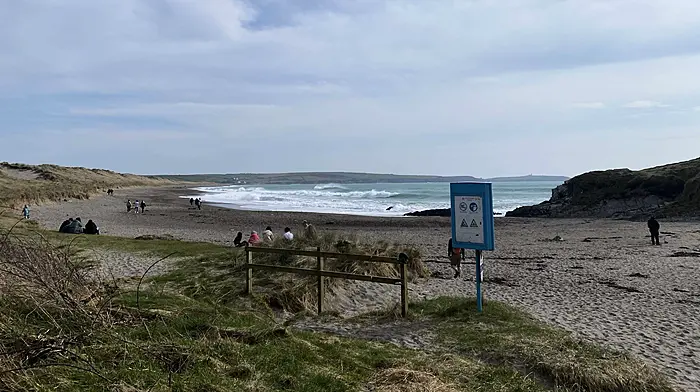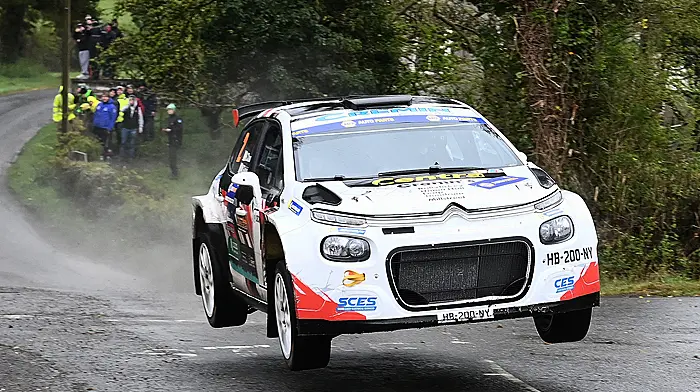Irish director Richie O’Donnell tells Siobhán Cronin why his earlier film on the Corrib gasfield led him to document the struggles of Irish fishermen in his fascinating new movie.
Irish director Richie O’Donnell tells Siobhán Cronin why his earlier film on the Corrib gasfield led him to document the struggles of Irish fishermen in his fascinating new movie.
CASTLETOWNBERE features in a new Irish movie which examines the threat to our fishing industry and the battle for our natural resources.
Atlantic, a movie by award-winning director Richie O’Donnell, has already won the Best Irish Documentary at the recent Dublin International Film Festival.
Richie has form in documenting the struggles of coastal communities – having directed the much-respected film on the Corrib Gas controversy in Mayo, The Pipe.
Atlantic – which will be shown in ‘cinemobiles’ around West Cork in April – has been narrated by actor Brendan Gleeson. ‘Atlantic is an engrossing piece of truth-seeking, visually stunning and crafted with clarity and insight. It was an honour to be involved,’ said Gleeson of the 75-minute documentary.
The movie visits communities in three countries along the Atlantic coast – in Newfoundland, Norway and Ireland.
Fishermen in Castletownbere, Galway and Donegal talk about how the EU policy on fishing rights has decimated their livelihoods, as they watch ‘supertrawlers’ from other European countries scooping up tonnes of fish practically alongside them.
‘You are made to feel like a criminal when you go out and do this,’ Arranmore fisherman Jerry Early, seen setting off on his modest fishing boat, tells the camera.
The film shows how Newfoundland stood up to the Canadian government after a particularly divisive cod fishing moratorium, when Canada sold fishing rights to Europe in exchange for grain markets. But now a lot of former fishermen there are finding work on the oil rigs instead.
Contrast this with Norway, where a forward-thinking government spotted the value of its oil resources long before any deals were made with big business.
Statoil was established, with 100pc State ownership, and is now a major player in the world oil industry.
As well as keeping the rights to its own fishing waters, Norway has developed into one of the world’s wealthiest countries, thanks to keeping a tight rein on its own resources.
The film cleverly juxtaposes this with the situation in Ireland. A progressive Industry Minister, Labour TD Justin Keating, saw the potential of Ireland’s resources in the 1970s and introduced strong laws which would mean there would be a 50/50 share of any profits with the oil companies. In an interview, recorded with Richie during the filming of The Pipe, Mr Keating jokes about how his plans were not very popular with the oil industry.
But they weren’t too popular with some Irish politicians, either, because once FF minister Ray Burke got into government, he overturned the deal, and handed more control to the resource companies.
This, combined with Ireland’s virtual ‘handing over’ of fishing rights to Europe once it joined the EEC in 1973, has seen the gradual devastation of our coastal communities, argues Richie in Atlantic.
He reveals how his work on The Pipe led him to the story of the Irish fishing industry. ‘When I was filming The Pipe, I started to see a pattern – not just about oil and gas. But about the State’s attitude to the sea. We turn our back on it. It has never been respected, or valued or utilised – property has, yes, and land, but not sea,’ explained Richie.
‘It has been used as a bargaining chip in favour of other interests. Of course, there are more votes in farming, and the farming groups are stronger.’
Richie was particularly taken by the story of a Norwegian fisherman, Bjornar Nicolaisen, who arrived in Rossport in Co Mayo, having seen his film The Pipe, wanting to know more about the Shell to Sea campaign. He was interested to hear about the role of big oil and gas in the area, including Norway’s State-controlled Statoil, a company he was very familiar with back on his home territory.
As a result of this connection, the wives of the Rossport 5 travelled to Norway to tell their story and a second group of Irish campaigners also visited the country, along with Michael D Higgins, now President Higgins.
‘There was a lot of support from the people of Norway at the time,’ recalled Richie, who was intrigued to discover how they appeared to get it so right in their country.
The very charismatic Bjornar has long been campaigning against the damage caused, and potentially bigger threats, to fishing stocks by big business, including seismic drilling in Norway.
He plays a big role in Atlantic, explaining how we must value our role as custodians of the sea for future generations.
‘I was fascinated to get the Norwegian perspective,’ said Richie, whose meeting with Bjornar in Mayo prompted him to travel to Scandanavia and see the situation there.
Richie also wanted to see what was happening on the far side of the Atlantic – and chose Newfoundland, which has so many Irish links – and accents – along its shores.
There he met with two generations of the Kane family – one having made their living off fish, the second off the oil rigs – struggling to survive in the rough North Atlantic. ‘In the short term,’ Richie observed, ‘the oil allows young people to come back and work in their native towns, but if the oil industry ends up damaging the fish, and if the stocks run out, and the oil price collapses, what then?’
Richie said Atlantic was four years in the making, attracting funding from such diverse sources as the Norwegian and Canadian TV firms, individuals who ran music gigs and other fundraisers, and a crowd-funding website. The site raised €56,000 and this was then matched by the Irish Film Board. ‘But it’s a pity we don’t have our own national broadcaster on board,’ he said, referring to RTÉ.
John D O’Sullivan of the Ronan Ross trawler in Castletownbere was also a big supporter of the documentary.
‘The Castletownbere Fisheries Co-op gave us €5,000,’ Richie explained, ‘but what is happening to the local fishermen down there is awful. These supertrawlers are landing their catches on the pier, it’s being loaded into lorries and off they go back to Spain by road.
‘And they are not even spending any money there – just a fill of diesel. They are evening bringing their own cigarettes with them.’
The film also shows the huge amount of waste that the supertrawlers are creating, with several thousand tonnes dumped overboard by ships when they deem large sections of the catch to be undersized.
‘They only pick the best, and dump the rest,’ former fisheries officer Kevin Flannery says in the movie.
‘And the quota is not with the boat, it is with the origin country, so even if our authorities board a boat, it is very hard for them to know what the quota is, and if the boat has exceeded it. With the Irish boats, the quota is with the boat,’ explained Richie.
‘Fishing isn’t done at sea anymore, it’s done at tables in Brussels and these places,’ says Máirtín Éanna Ó Conghaile in Atlantic, skipper on the Iúda Noafa, out of Galway, as he watches a supertrawler hawling in its massive, bulging, nets.
There is a very poignant moment in the movie when fisherman Jerry Early is summonsed to court for fishing with a net that has the ‘potential’ to catch salmon. Jerry is watching supertrawlers rape his shore of its finest fish, every day of the week.
And while the situation is clearly unfair, a frustrated Richie sees himself as more messenger than campaigner.
‘I wanted Atlantic to be informative, balanced, and not about preaching. ‘The film is about learning lessons. All I can do is highlight it and tell the story. But, to be honest, I see no political will to change things.’
Atlantic will be shown in a ‘Cinemobile’ in the following towns: Kinsale (Saturday 16th April); Union Hall (Sunday 17th April); Castletownbere (Monday 18th April); Caherciveen (Tuesday 19th April), and Dingle (Wednesday 20th).

